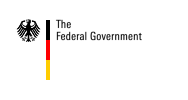- Science and technology for sustainable development / environment
- The results are to be presented in 2008 in Japan.
- Intellectual property / product piracy
- Information society
- The fight against corruption
Science and technology for sustainable development / environment
In Evian in 2003 the G8 passed an action plan on science and technology for sustainable development, in which the countries agreed to "support the development of cleaner, more sustainable and more efficient technologies”. Public health was to be improved by means of research to avoid greenhouse gases and environmental pollution.
In 2004 on Sea Island the heads of state and government resolved on the "Reduce, Reuse and Recycle” Initiative ("3r”). This aimed to make more effective use of resources and materials, and to reduce waste.
In Gleneagles in 2005 the idea was pursued further and included in an action plan on climate change, clean energy and sustainable development. The countries also undertook to work on low-emission vehicles. Furthermore, the action programme of the Conference for Renewable Energies which was held in Bonn in 2004 was to be rapidly implemented.
The results are to be presented in 2008 in Japan.
In addition, in St. Petersburg in 2006 the G8 signed off the Plan of Action on Global Energy Security, in which it strengthened its resolve to use nuclear energy more safely and to work together with the private sector on the development of innovative energy technologies.
Intellectual property / product piracy
The complex of intellectual property and product piracy has repeatedly been on the agenda of G8 meetings. Most recently in Gleneagles and St. Petersburg the countries affirmed their intention to combat these threats to the economy.
Joint national, international and worldwide measures were seen to be necessary for this. The G8 attach particular value to regional conferences on information exchange and the further development of cooperation between security and financial authorities.
The German presidency will raise this theme with increased emphasis in 2007.
Information society
At the Okinawa summit back in 2000 the G8 broached the subject of the exceptional significance of the new information and communication technologies, which should be accessible to all.
In order to ensure this benefit for democracy, the Digital Opportunity Task Force ("Dot-force”) was founded. After presenting its first report in Kananaskis in 2002, the task force now has more than 100 member organisations in more than 30 countries. 20 bilateral initiatives have arisen from it, especially with regard to NEPAD.
The fight against corruption
Back in 2003 in Evian the heads of state and government agreed to take up the fight against corruption and for more transparency in the countries together with the developing countries.
This was seen as the only way for development work to succeed in the long term. For this reason the G8 emphasised the importance of cooperation with international organizations and their initiatives, such as the creation of a UN Convention against Corruption or the ratification of the Convention against Transnational Organized Crime.
By 2004 in Sea Island the governments of Nicaragua, Georgia, Nigeria and Peru had agreed on cooperation with the G8.
In 2005 in Gleneagles the G8 passed the Extractive Industries Transparency Initiative (EITI), and finally in St. Petersburg in 2006 an Action Plan against High Level Corruption.
